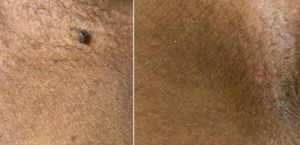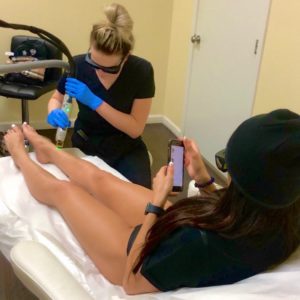Have you ever wondered which treatment is best for skin lightening? Your quest for information is likely driven by a desire to make an informed decision about enhancing your skin’s appearance. This comprehensive guide will take a detailed look at the various treatments available for skin lightening, helping you understand their benefits, risks, and efficacies.
Understanding Skin Lightening
skin lightening treatments are often sought to reduce pigmentation, dark spots, and to achieve a more even skin tone. Various treatments range from topical solutions to advanced medical procedures. Understanding the fundamental reasons for skin pigmentation and the available treatments can help you choose the best method for your needs.
Common Skin Lightening Treatments
Topical Treatments
Topical treatments are perhaps the most accessible and cost-effective method for skin lightening. They can be easily integrated into your skincare routine without the need for invasive procedures.
Hydroquinone
Hydroquinone is a widely-used skin lightening compound that works by inhibiting melanin production. It is often recommended for hyperpigmentation and dark spots.
Pros:
- Effective for reducing pigmentation
- Easy to apply
Cons:
- Potential side effects include irritation and redness
- Long-term use is not advised
Vitamin C
Vitamin C is a powerful antioxidant that not only lightens the skin but also provides anti-aging benefits.
Pros:
- Enhances overall skin health
- Minimal side effects
Cons:
- Requires consistent use to see results
- Not as potent as other treatments
Chemical Peels
Chemical peels involve applying a chemical solution to the skin, which causes it to exfoliate and eventually peel off. This reveals new, usually lighter skin underneath.
Glycolic Acid Peel
Glycolic acid peels are one of the most commonly used chemical peels for skin lightening.
Pros:
- Effective for treating superficial pigmentations
- Stimulates collagen production
Cons:
- Skin irritation and redness post-treatment
- Requires multiple sessions for optimal results
Lactic Acid Peel
Lactic acid peels are gentler compared to glycolic acid peels and are ideal for sensitive skin types.
Pros:
- Less irritating
- Provides a softer exfoliation
Cons:
- Less effective for deep pigmentation
- Requires more frequent applications
Laser Treatments
Laser treatments are increasingly popular for their efficacy and quick results. They target pigment cells directly, resulting in more even skin tone.
Q-Switched Nd:YAG Laser
This is one of the most effective lasers for skin lightening. It is particularly useful for treating dark spots and melasma.
Pros:
- Precise targeting of pigmentation
- Fast recovery time
Cons:
- Higher cost compared to topical treatments
- Multiple sessions required
Fractional CO2 Laser
This laser not only addresses pigmentation but also improves skin texture.
Pros:
- Dual benefits of lightening and skin rejuvenation
- Long-lasting results
Cons:
- Can be painful
- Requires significant downtime
Microdermabrasion
Microdermabrasion is a minimally invasive procedure that exfoliates the outer layer of the skin. It can help in reducing superficial pigmentation.
Pros:
- Quick procedure
- Improves skin texture
Cons:
- Results are less dramatic
- May require multiple sessions
Natural Remedies
While not as potent as medical treatments, natural remedies can offer a more holistic approach to skin lightening.
Lemon Juice
Lemon juice contains natural bleaching agents that can help lighten the skin.
Pros:
- Easily accessible
- Cost-effective
Cons:
- Can cause skin irritation
- Results are subtle and take time
Turmeric
Turmeric is known for its anti-inflammatory and skin lightening properties.
Pros:
- Natural and safe
- Improves skin health
Cons:
- Can cause temporary staining
- Less effective than medical treatments
Making The Right Choice
Choosing the best treatment for skin lightening involves considering multiple factors like your skin type, the severity of pigmentation, and your overall health. Consulting with a dermatologist can provide personalized advice tailored to your skin’s needs.
Factors To Consider
- Skin Type: Sensitive skin may react differently to certain treatments.
- Severity of Pigmentation: Deeper pigmentation might require more aggressive treatments.
- Cost: More advanced treatments like laser therapy are generally more expensive.
- Time: Some treatments may require a longer commitment than others.
Treatment Comparison Table
| Treatment | Efficacy | Cost | Downtime | Suitable For |
|---|---|---|---|---|
| Hydroquinone | Moderate | Low | None | Mild to moderate pigmentation |
| Vitamin C | Moderate | Low | None | General skin health |
| Glycolic Acid Peel | High | Moderate | Low to Moderate | Deeper pigmentation |
| Lactic Acid Peel | Moderate | Moderate | Low | Sensitive skin |
| Q-Switched Nd:YAG Laser | Very High | High | Minimal | Severe pigmentation |
| Fractional CO2 Laser | High | Very High | High | Dual concerns of texture and pigmentation |
| Microdermabrasion | Moderate | Low to Moderate | None | Superficial pigmentation |
| Lemon Juice | Low | Very Low | None | Mild pigmentation |
| Turmeric | Low | Low | None | General skin health |
Risks and Side Effects
Common Risks
- Skin Irritation: Treatments like hydroquinone and chemical peels can cause redness and irritation.
- Sun Sensitivity: Many skin lightening treatments increase sun sensitivity, necessitating the use of high SPF sunscreens.
- Hyperpigmentation: In some cases, treatments like laser therapy can cause post-inflammatory hyperpigmentation if not done correctly.
Mitigating Risks
- Patch Test: Always perform a patch test before using topical treatments.
- Consult a Professional: Medical treatments should be performed by qualified professionals.
- Follow Post-Treatment Care: Proper aftercare is crucial for minimizing risks.
Maintaining Results
Achieving a lighter complexion is only half the journey; maintaining these results requires a consistent skincare regimen and healthy lifestyle choices.
Skincare Routine
- Sunscreen: Always wear a broad-spectrum sunscreen to protect against UV rays.
- Moisturizer: Keeping your skin hydrated can enhance the effects of your treatment.
- Gentle Cleansers: Use cleansers that are kind to your skin to avoid unnecessary irritation.
Regular Follow-ups
Regular follow-up sessions with your dermatologist can help in maintaining the results and addressing any concerns promptly.
Healthy Lifestyle Choices
- Diet: A balanced diet rich in antioxidants can improve overall skin health.
- Hydration: Staying hydrated helps in maintaining skin’s elasticity and radiance.
- Avoiding Harmful Habits: Steering clear of smoking and excessive alcohol consumption can benefit your skin in the long run.
Conclusion
Determining the best treatment for skin lightening is not a one-size-fits-all approach. It requires a thoughtful consideration of various factors including your skin type, pigmentation issues, budget, and lifestyle. By understanding the pros and cons of each treatment, you can make an informed decision that aligns with your beauty goals.
For personalized advice and professional treatments, Spoiled Laser offers a variety of services designed to help you look and feel your best. Located at 8665 W Flamingo Rd Las Vegas, NV 89147, you can reach Spoiled Laser at 702-228-5171 to book a consultation and discuss the best skin lightening treatment options suited for you.
In summary, while each treatment has its unique benefits and potential drawbacks, your decision should be guided by professional advice, your skin’s specific needs, and your personal preferences. By doing so, you ensure a safe and effective journey towards achieving your desired complexion.




